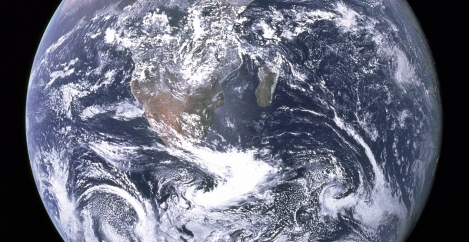May 19, 2020
Global carbon dioxide emissions fall dramatically because of lockdown
 Carbon dioxide emissions have declined rapidly during the Covid-19 lockdown according to a new global academic study, but experts are warning that the reductions may be short-lived as normal economic activity resumes. The findings appeared today in the journal Nature Climate Change. The international study of carbon emissions found that daily emissions declined by around 17 percent between January and early April, compared to the previous year and could decline anywhere between 4.4 percent and 8 percent for the whole of 2020, the largest annual drop since the Second World War.
Carbon dioxide emissions have declined rapidly during the Covid-19 lockdown according to a new global academic study, but experts are warning that the reductions may be short-lived as normal economic activity resumes. The findings appeared today in the journal Nature Climate Change. The international study of carbon emissions found that daily emissions declined by around 17 percent between January and early April, compared to the previous year and could decline anywhere between 4.4 percent and 8 percent for the whole of 2020, the largest annual drop since the Second World War.
The study makes no predictions of longer-term trends especially with the underlying characteristics of the global economy. “I can’t celebrate a drop in emissions driven by unemployment and forced behavior,” said Rob Jackson, study co-author and professor in Stanford University’s Earth Science Systems department. “We’ve reduced emissions for the wrong reasons.”
The study looked at emission from 69 countries, including the US and China. The surveyed countries are home to 85 percent of the world population and produce 97 percent of all global carbon dioxide emissions.
The report claims that carbon reductions were primarily driven by a fall in the use of vehicles with transport activity levels falling by 50 percent between the start of the year and the end of April. The most significant decline in travel occurred in aviation, a 75 percent decrease, but this accounted for less of the fall than the reduction in vehicle use.
By the end of April, carbon emissions declined by 1,048 metric tons of carbon dioxide, the researchers claim. The decline was largest in China.
“This is a really big fall, but at the same time, 83 percent of global emissions are left, which shows how difficult it is to reduce emissions with changes in behaviour,” said Corinne Le Quéré, a professor of climate change at the University of East Anglia, and lead author of the study. “And it is not desirable – this is not the way to tackle climate change.”















